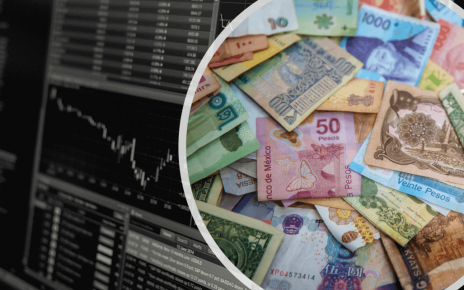Coronavirus lockdowns might be slowly easing around the world, but the current economic and social anxiety won’t disappear anytime sooner. In fact, financial analysts claim that this economic anxiety can intensify if companies don’t adapt to new changes to usher a new era of capitalism.
Although the global economy, including the US, is facing a downturn, there is still time to minimize the impact of the overall outcome. To achieve this economic threshold, there has to be swift economic, societal, educational, and health reforms that would ultimately increase work productivity.
Long-term economic consequences
Primarily, the companies have to pay close attention to long-term economic consequences that can jeopardize the stakeholders’ future. From China to the United States, participation will have to be at the forefront in every industry. Whether its transformation of tech, gas, or oil sector, industry leaders need to be open about resetting the traditional values that often hold back capitalism’s true potential.
Failure to adopt or adhere to the new age of capitalism will result in catastrophic consequences for the foreseeable future. Public debt and downturn economic growth would become a norm for countries. International Monetary Fund indicates that the global economy will shrink by approximately 3% in 2020.
The bright side
It is imperative to be objective about 6.3% of downgrade points within a few months. It should not be the cause of pessimism among business communities. Change, after all, takes time and the keys to economic power are still in the hands of the industry leaders.
Amidst the pandemic crisis, there is always a glimpse of revelatory. In fact, even when some global economies face negative growth rates, there is still leadership at the helm that can save the day. Sure, the world economic power is dwindling, and the consequences look terrifying, but companies are gradually learning to cope.
Evidently, businesses are struggling with the tide of a lack of resources. However, the resilience and strength of the brands will maintain the foundations of capitalism. However, the path to recovery for numerous renowned brands won’t be instant.
Current sustainability of capitalism
The re-evaluation of financial impact due to economic stress was inevitable. Therefore, the stimulus packages of a varying degree from governments will help reshape the economies. Currently, Japan’s stimulus packages amount to 21% of its GDP, whereas stimulus packages rose to $2.7 trillion.
The financial crisis, however, presents itself in a time when world debt is at an all-time high. In fact, global debt will continue to increase throughout the pandemic. Similarly, the equity market is awaiting better valuations.
For instance, when it comes to fixed income, the low benchmark rates infused liquidity in the economic system. Surprisingly, risk evaluation of safe-bet low-returns related to the fixed income market is no longer the same.
Furthermore, the decrease in economic activities has created fiscal pressure, and small oil revenues are forcing governments to succumb to sizable debt. That said, corporate issuance of bonds in the US shows a ray of light at $6.6 billion in May.
Ambition and cooperation
The silver lining of the COVID-19 pandemic is how companies “can” make radical financial changes. In fact, the crisis forced small businesses and corporate giants to let go of the capitalist practices that are not essential anymore.
Nonetheless, the future sustainability of capitalism will require large scale government investments to help economies progress. The European Commission’s €750 billion recovery fund may be the first of the many recovery plans.
A post-COVID role model to follow
The Swiss economic model is one of the most sophisticated role models for the world. Its capitalist foundation has a culture that is somehow showing resilience to the pandemic. Technically, the whole business community of Swiss is relatively more strategic.
Furthermore, business decisions are interconnected with national supplies, healthcare, and even national security matters. However, the national planning procedure of the Swiss government and economic policymakers is also more objective. In fact, Swiss aims to maintain the same supply and demand standards within the country.
Bottom line
The coronavirus crisis is impacting every aspect of people’s professional and personal lives throughout the world. However, tragedy does not have to become a legacy. Contrarily, the pandemic serves as a rare opportunity for capitalism to reflect on its mistakes.
Civil societies, companies, and federal governments can collectively put out the fire of the economic crisis with the right utilization of means and resources. It is time to reset and reimagine the global economies that can create an equitable, healthier, and profitable future.





